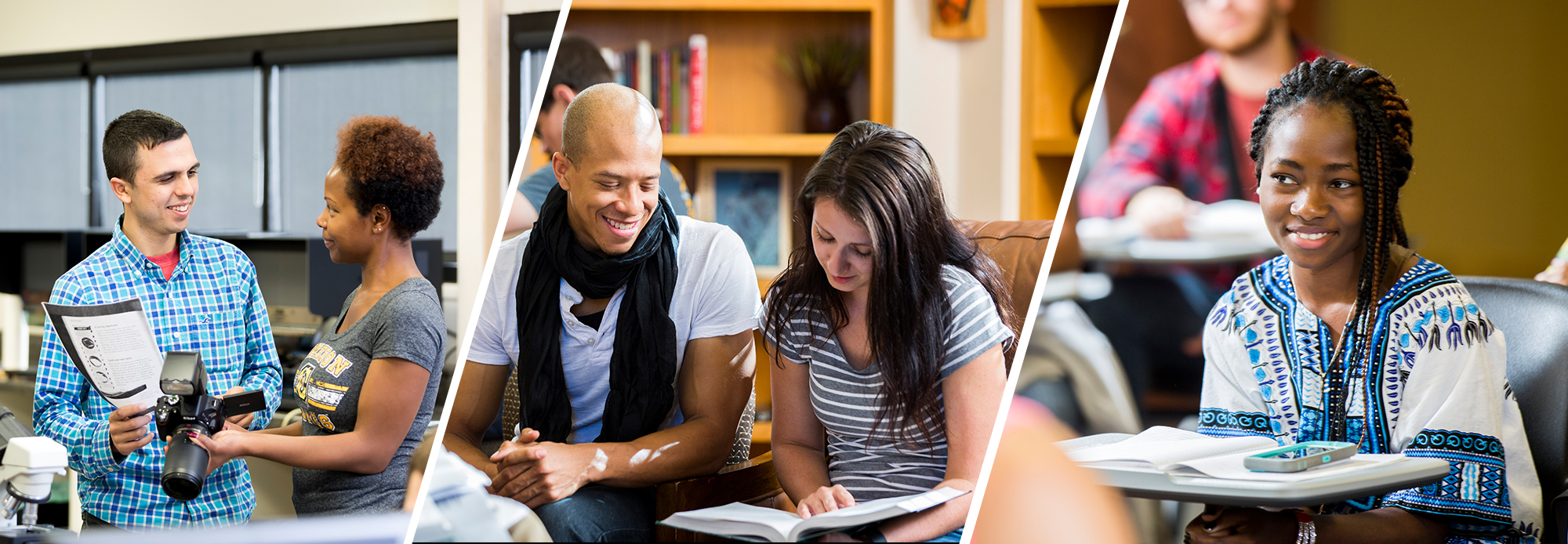Degree Programs
The Department of Social Sciences offers one associate and five baccalaureate degree programs: an Associate in Applied Science in Criminal Justice, Bachelor of Arts degrees in History, Political Science, and Social Studies Education, and Bachelor of Science degrees in Criminal Justice and Sociology. For more information on these degree programs, please click the links in the menu bar above or on the program name below.
Associate in Science in Criminal Justice
Bachelor of Science in Criminal Justice
MISSION STATEMENT
The Criminal Justice program situated within the Department of Social Sciences offers programs leading to a Bachelor of Science degree with a major in Criminal Justice and an Associate Degree in Science in Criminal Justice. Our academic programs empower students to explore their interests, express their ideas, and experience the pride of uncovering new knowledge. The Criminal Justice programs allow students to learn about the etiology of crime and societal reaction to the causes of crime. The role of law enforcement agencies, courts, correctional agencies, and private agencies that assist in the prevention and control of crime and delinquency are within the purview of the Criminal Justice programs. Graduates of Criminal Justice find employment with agencies of social control, proceed to graduate school or law school.
Bachelor of Arts in History
Bachelor of Arts in Political Science
MISSION STATEMENT
The mission of Cameron University’s Department of Social Sciences is to provide high quality instruction to students at the undergraduate level using a multi-disciplinary approach that emphasizes active learning, problem solving, and critical thinking. The department is dedicated to excellence in teaching, scholarship, and service, offering degrees and minors in Criminal Justice, Geography, History, the Humanities, International Studies, Political Science, Pre-Law, Social Studies Education and Sociology, along with a broad array of required and elective general education courses. Our academic programs empower students to explore their interests, express their ideas, and experience the pride of uncovering new knowledge. The department strives to develop students into scholars, mentors, and responsible citizens of their community, state and country who make a positive difference in society through their involvement in their particular field in the social sciences.
Bachelor of Science in Sociology
MISSION STATEMENT
The Bachelor of Science degree in Sociology empowers students to explore their interests, express their ideas, and experience the pride of uncovering new knowledge. It also provides critical knowledge to students on social institutions, social change, and consequences of human behavior. Students learn to apply research skills and theoretical knowledge to the challenging issues of our times. Graduates of our program pursue careers in private and public sectors or proceed to graduate school.
BACHELOR OF ARTS IN SOCIAL STUDIES EDUCATION
MISSION STATEMENT
The Social Studies Education Program is situated in the Social Sciences at Cameron University. The Social Studies Education Program faculty provide Social Studies Education Majors with rigorous training in historical knowledge of all major world regions, gaining classroom experience in planning, teaching, and assessment in the Social Studies. General Education: The Social Studies Education Program plays a major part in the General Education mission of the Department of Social Sciences, equipping majors to be active and effective students and citizens Community Outreach Through Faculty Scholarship, Community Partnerships, Public Lectures, Symposia, and Outreach efforts: In order to support the Social Studies Education Program's primary student learning outcomes, Social Studies Education Program faculty maintain their disciplinary engagement by interacting with colleagues in the CU community and members of the public through scholarship within and across disciplines; public lectures and academic conferences; and teacher institutes, policy forums, and other public venues.
Minors
- Corrections
- Criminal Justice
- Geography
- History
- Humanities
- International Studies
- Law Enforcement
- Philosophy
- Political Science
- Pre-Law
- Social Sciences
- Sociology

